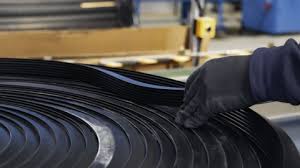Vulcanising Agents, What Are These And What Are They Advantages?
Vulcanization is a well known process among the rubber industry. It is a chemical process that is used to turn the natural rubber and other polydiene elastomers into cross-linked polymers. Doing so will help to improve the characteristics of rubber and make it more durable to turn it into the materials that can be used in our daily lives. Vulcanization is not possible without its vulcanizing agents. So it is important to talk about vulcanizing agents as well.
Vulcanising agents
Sulfur is the most common vulcanizing agent, but when talking about Vulcanizing agents, they can be easily divided into two different categories. Organic curing agent and inorganic vulcanizing agents.
Inorganic Vulcanizing Agent: Sulfur, sulfur monochloride, tellurium, selenium, etc.
Organic Curing Agent: Accelerators that contain sulfur such as TMTD, benzoyl peroxit, polysulfide polymers, etc.
Advantages of Vulcanization:
Improves the tensile strength and extensibility.
Offer excellent resilience i.e. the rubber will return to the original shape, after the removal of the deforming load.
It will absorb less water.
Improves resistance to oxidation, wear and tear abrasion.
Better electrical insulator.
It is resistant to organic solvents, fats and oils.
Workable temperature range of -40.C to 100.C




Comments
Post a Comment